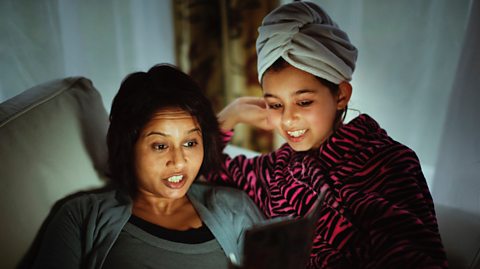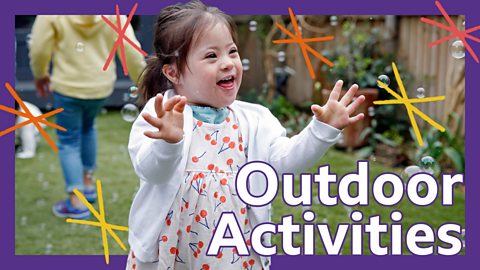This article was first published in June 2020
Dr Carrie Grant is a broadcaster, campaigner and vocal and leadership coach and David Grant MBE is a singer, vocal coach and presenter.
Lockdown. For many the thought of being shut away in their homes has felt more like being locked up. Parents and carers, up and down the country, have spoken of the difficulty of homeschooling, the challenge of keeping children occupied and most potently, the fear for their children’s mental health.
We are parents to four children (three birth, one adopted) all with additional needs (autism, ADHD, Dyslexia, Dyscalculia, Dyspraxia, MH challenges etc.) so perhaps our outlook on this period has been slightly different. For many of us with SEND children “lockdown” life is all too familiar.
We have been used to racing to school when things have gone wrong or cancelling whatever we were meant to be doing in order to be permanently on call. Having one child refusing to go to school followed by another who has been out of school for the past three school years means we have faced the situation many SEN parents face, a child attempting to live in their bedrooms, in mental health crisis. As parents we shrink our world to fit.
When lockdown began, with seven of us living under one roof, we embarked on an interesting journey. Our older two daughters, Olive (25 years) and Talia (18 years), both actors, are usually away filming for parts of the week so suddenly the house felt very full and the threat of big challenges loomed. These are our lockdown takeaways so far:
 Image source, CARRIE GRANT
Image source, CARRIE GRANT“It’s not fair”
Our biggest challenge was how we would manage our children’s needs but also how we would navigate (or referee!) their interactions with one another. How could we keep it fair for every child?
For the past six years we have run a parent/carer support group in our home, for families of autistic girls. We have over 140 families involved and a subject that continually comes up is siblings.When we become parents most of us have an idea about how we want to raise our children, a fundamental aspiration being that we should have a consistent uniformity in our parenting. Parenting children who are neuro-diverse or who have experienced trauma means the “one size fits all” strategy simply doesn’t work.
We have had to learn equal does not mean the same. We have had to figure out how to adapt and work with whatever situation presents itself on any given day. This means our parenting style is micro-adjusted to the needs of each child.For instance, how we work with a child on suicide watch will be very different to how we work with a 10-year-old with a messy bedroom who needs to eat their vegetables.Being in such close proximity in lockdown means all those differences in approach are magnified. To our children it sometimes feels unfair. We have needed to hear our children on this.
Sitting in it
Truly hearing our children is a skill we continually strive to master. By nature, we are problem-solvers, practical, hands on, “we’ve got the answer to this” kind of people. This can be really helpful but can also be a real hinderance to our children.
We have had to learn to sit alongside them in their thoughts and feelings. Align ourselves with their cause, hear their hearts, read their language when there are no words and wait in the silence, especially when we cannot shift or change their situations. In lockdown they have each had their own worries. A lot have been unfounded, but our motto is “if it bothers our child, it bothers us.”
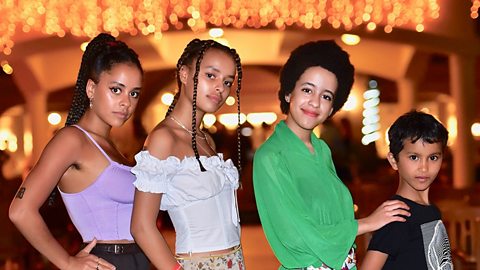 Image source, CARRIE GRANT
Image source, CARRIE GRANTSmall wins
Just before lockdown started, we decided to record the small wins within our family. Times were very challenging for us; we were aware there were good things going on, but these were being overshadowed by some of the more threatening situations.As we began to write down these small wins, we began to realise, on a daily basis, just how amazing our children are.
For example, our 10-year-old son, Nathan, took a bag of crisps to our 14-year-old, Imogen and came bounding back saying, “Immy told me she loved me!” Our hearts were warmed by this unexpected interaction.
Perhaps for other families this is normal but for us this is a rare experience and we relish the positivity. Appreciating all, even tiny forward motion is incredibly rewarding.
Stay in your lane
Parent blaming and shaming seems rife in our society and leaves a constant pressure to all of us to “keep up with the crowd.” Parents on social media parading each and every one of the never-ending stream of activities they are managing to do with their children can make others feel real failures. We all take this curse of comparison on board either consciously or not’.
The difference with our children is that having been excluded from the chance to fit in at school they have been forced to carve their own path. Ultimately, this is an advantage, each goes at their own pace on their own path. Their successes are measurable against where they have come from, not against anybody else. In our world they are absolute overcomers, they are totally successful. As parents we have also learned to walk our own path. Comparisons are futile.
Mental health
The most important aspect of our children’s health is their mental health. Above all. If mental health goes down, then everything goes down. We have often asked ourselves if the mental health struggles our children have faced are caused by their diagnosis or by school/societal experiences.
The cruelty of school rejection and bullying would be overwhelming for an adult let alone a developing child. Not fitting in and not being accepted for who we are and as we are can have catastrophic consequences to our mental health. We need to work together to create a kinder society. A society where one’s unique identity is not simply tolerated but positively celebrated.
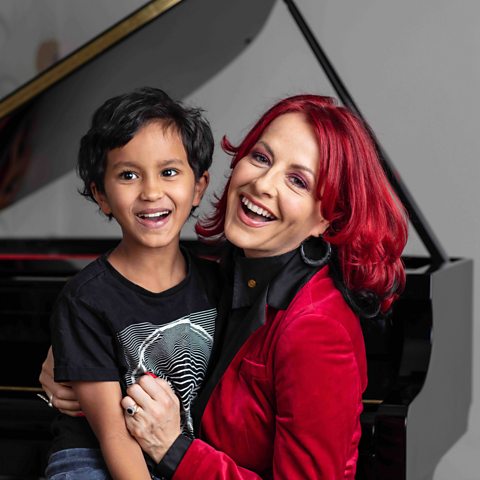 Image source, Sophie Mutevelian
Image source, Sophie MutevelianLockdown has given us all a chance to assess our lives: To think about the world we want to live in and the things we are able to change. Our family has actually really enjoyed lockdown, we have been unified, supported one another in the struggles, eaten together, laughed together, debated, played, walked and argued a bit too.
It has been great not to have to face the world’s rejection and judgement. It has been great to bask in an atmosphere of acceptance and watch our children flourish in this environment.
Our challenge will probably be how we navigate moving back into the world. How we transition from a tight group of people who “get” each other to a broader, less accepting world.As SEN parents we will continue to prepare our children for the world and attempt to prepare the world for our children.
 Image source, Sophie Mutevelian
Image source, Sophie Mutevelian
Parents' Toolkit
Fun activities, real-life stories, wellbeing support and loads of helpful advice - we're here for you and your child.

How to support your teen as they decide on their future career
Career coach Mark Anderson has advice for parents of teens who are choosing their options at GCSE or are nearing the world of work.
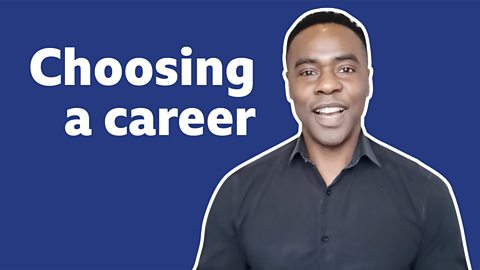
Five tips for helping your kids to eat healthily all year round
Healthy eating hacks for parents from dietitian Priya Tew.
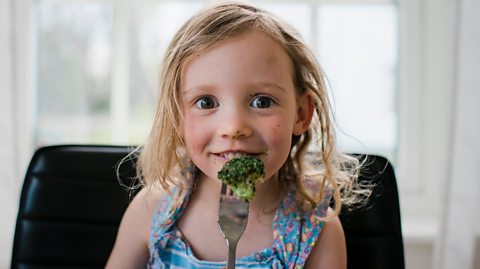
How to manage your child’s online world without clashing
Children and teens spend lots of time online for school and leisure, which can be a worry for parents. Here's some advice on managing your child’s screen time.
